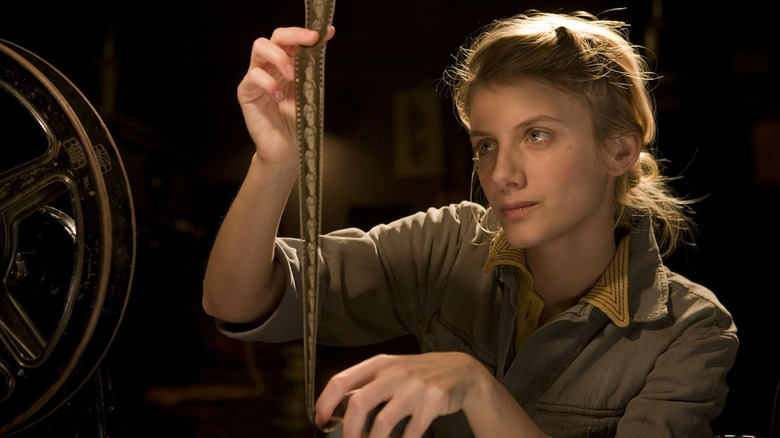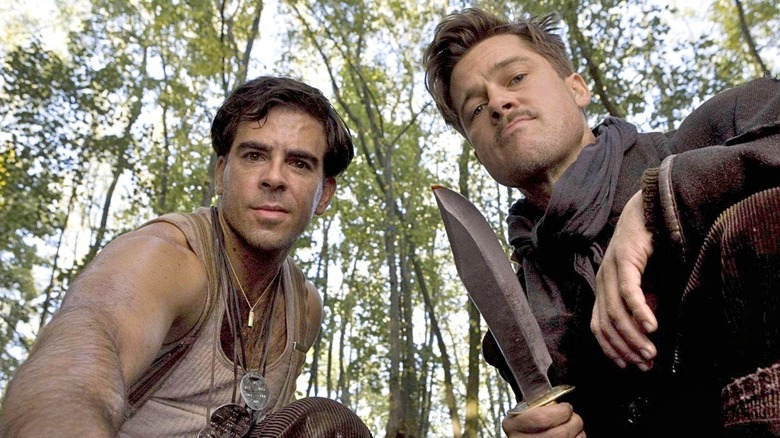Inglourious Basterds Was Meant To Be Quentin Tarantino's Next Original Follow-Up To Pulp Fiction
Quentin Tarantino's Academy Award-winning "Pulp Fiction" was a phenomenon when it burst onto the cinematic scene in 1994. The director's sophomore effort, the film paved the way for his genre-hopping, exploitation-influenced brand of cinema. It wasn't until 15 years and four films later (counting "Kill Bill" a one entry, of course) that Tarantino received his next batch of Oscar nominations, with the exceptional revisionist history WWII epic "Inglourious Basterds."
"Basterds" sees Brad Pitt star as Lieutenant Aldo Raine, the leader of a rag-tag group of American troops who engage in guerrilla warfare deep in the heart of German territory. Alongside Shosanna Dreyfus (Melanie Laurent), a French cinema owner who escaped Nazi persecution in her younger years and now seeks revenge, the pair carve independent paths towards revenge against the monstrous Third Reich's leadership.
It's an action-packed, suspenseful take on the WWII war drama, with considerable suspense, high-octane action, and whip-smart dialogue delivered with precision from actors like Pitt and the excellent Christoph Waltz. Interestingly enough is that, despite the sizable distance between the film and Tarantino's "Pulp Fiction," Tarantino had "Basterds" on the brain for some time. As it turns out, the director had started work on the project after his Elmore Leonard adaptation "Jackie Brown," intending "Basterds" to be his return to original tales after "Pulp Fiction." Here's why that didn't happen.
Inglourious Basterds just might be his masterpiece
In a 2009 interview with The Village Voice, Tarantino notes that he started working on the "Basterds" script after "Jackie Brown." "I was going to follow the original story about American troops escaping while being convoyed to court martial and execution," he says. Of course, he didn't actually make "Basterds" until many projects and years later, so why did the film become such a long-simmering entry in his catalog? Simple. "It was going to be my first original script after 'Pulp Fiction,' so I was a little precious with it," Tarantino explains.
"Basterds" may have taken some time to come to fruition, but he certainly suffered no lack of inspiration for the narrative. Once "Jackie Brown" was over and he started working on it:
"I started writing and couldn't stop; it was turning into a novel or a miniseries. Ideas kept coming to me, and it was becoming more about the page than about this movie I might eventually make."
It wasn't the only time an original narrative ballooned as he dove into the project, either. "That also happened with Kill Bill," he proceeds, "which is why it ended up being two movies." At the time, Tarantino found himself enamored with the idea of taking advantage of the possibilities of the DVD boxed set. "The whole idea of a DVD boxed set is pretty amazing," he expounds, clarifying that "no writer-director has yet taken advantage of that format, a wonderful one to be a true auteur with." Unlike "Kill Bill," Tarantino ultimately chose to pare "Basterds" down to one singular film, and one would never guess it had such a long-gestating and circuitous route to the cinema.

